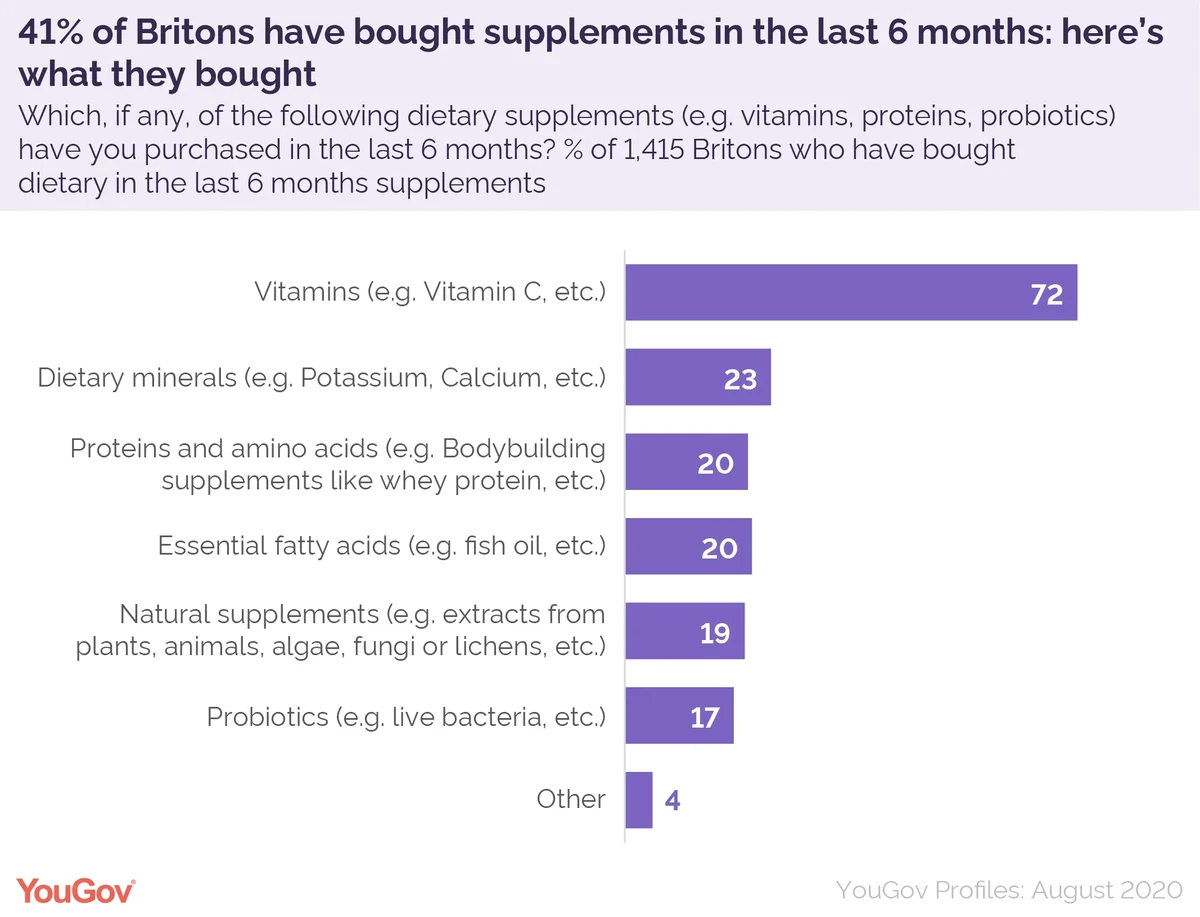We use YouGov Profiles to look at the four in ten Brits who have bought health supplements recently
Four in ten Britons (41%) have bought supplements in the past six months. Looking at YouGov Profiles data reveals more about this group’s buying habits and characteristics.
The vast majority of this group have purchased vitamins (71%). A quarter (23%) have bought dietary minerals like potassium or calcium, with a similar proportion buying essential fatty acids like cod liver oil (21%).

One in five (19%) have bought proteins and amino acids (like bodybuilding supplements), 18% have bought natural supplements (e.g. plant/animal extracts) and 17% have bought probiotics (e.g. live bacteria).
In terms of buying habits, the majority of supplement purchasers (55%) say they buy them as and when they need them. A further 22% say “I like to keep a supply of some things at home, but others I will buy when necessary”, while another 17%’s policy is to “have a well-stocked medicine cabinet at all times”.
They are most likely to be influenced by value for money (36%) or price (34%) when deciding between supplement brands. Only 18% say their choice is based on their own research, and just 16% say it is based on the nutrients/substance included.
Three in ten (31%) say they only ever buy their supplements in-store. Around a quarter (26%) buy some – but less than half – of their supplements online, while 38% buy half or more online (including 19% who buy all or almost all online).
Who are supplement purchasers, and what do they think?
Supplement purchasers are more likely to be young, with 28% being in the 18-24 age bracket compared to 13% of all Britons. They are also more likely to be male (54%) than female (46%).
They are slightly more likely to be earning £50,000 a year (11% vs 6% of all Britons).
They are only slightly more likely than the general population to be exercising at least once a week (67%, vs 60%).
They are twice as likely to believe that dietary supplements are a good replacement for an unhealthy diet (36% vs 18%).
They are more likely to think that probiotics can help build a healthy immune system than the general public (58% vs 39%). This increases to 79% among probiotic purchasers specifically.










